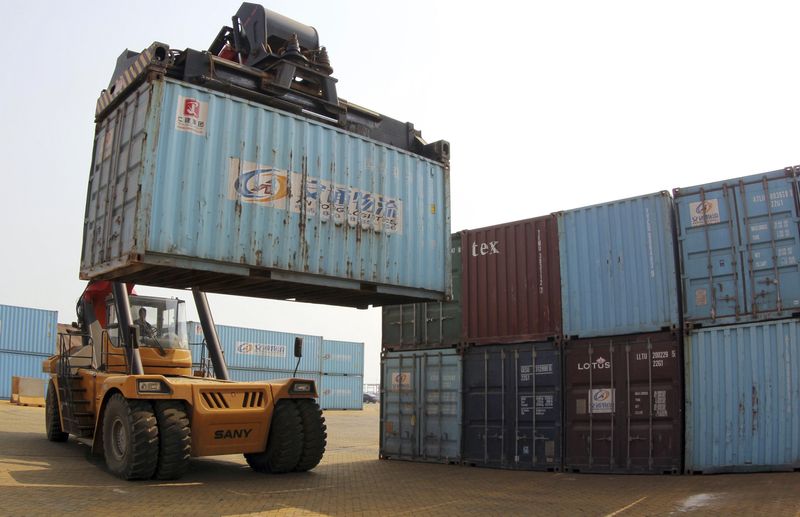BEIJING (Reuters) -China will impose export restrictions on antimony and related elements in the name of national security, the Commerce Ministry said on Thursday, the latest move by Beijing to restrict shipments of crucial minerals in which it is the dominant supplier.
Last year, China was responsible for 48% of global mined production of antimony, a strategic metal used in military applications such as munitions, infrared missiles, nuclear weapons and night vision goggles, as well as batteries and photovoltaic equipment.
The restrictions are imposed “to safeguard national security and interests and to comply with international obligations such as non-proliferation,” the ministry said in a statement.
At a regular weekly briefing on Thursday, the ministry said the measures were not aimed at any specific country or region.
“It’s a sign of the times,” said Christopher Ecclestone, director and mining strategist at Hallgarten & Company in London.
“The military use of Sb (antimony) is now the tail wagging the dog. Everyone needs it for armament, so it is better to hold on to it than sell it,” he said. “This will put real pressure on the American and European militaries.”
The limits, which will take effect from September 15, apply to six types of antimony-related products, including antimony ore, antimony metals and antimony oxide, the ministry said in a statement.
The rules also ban the export of gold-antimony melting and separation technology without authorization.
DUAL USE
Exporters of affected products must apply for export licenses for dual-use products and technologies – which can have both military and civilian applications – the report said.
The US and other countries are scrambling to reduce their dependence on China for key materials by developing policies and support packages for their crucial mineral sectors, including rare earths.
In an April research note, China Securities analysts said rising demand for weapons and ammunition due to wars and geopolitical tensions was likely to lead to a tightening of controls and stockpiling of antimony ore.
Perpetua Resources, which is building a U.S. antimony and gold project with support from the Pentagon and the U.S. Export-Import Bank, initially planned to start production by 2028 if it receives final permits this year. But China’s moves have the company studying ways to produce antimony faster.
“We’re looking at things we can do during construction to get antimony out the door sooner for some of these strategic needs,” Perpetua CEO Jon Cherry told Reuters.
“The (U.S.) Department of Defense is aware of the critical nature of antimony and the shortage of available supply. We have heard from many different sources about the lack of supply of antimony, that the market is very tight and getting tighter. daily.”
Shares of Perpetua rose as much as 19% on Thursday to levels not seen in three years.
WIDENING BANDS
China’s latest measures follow a wave of such restrictions introduced since last year.
In December, China banned the export of technology to make rare earth magnets, adding to an existing ban on the export of technology to extract and separate the critical materials.
Beijing has also tightened exports of certain graphite products and imposed restrictions on the export of gallium and germanium products widely used in the semiconductor industry.
Antimony prices soared to record highs this year, fueled by tight supply and growing demand, especially from the photovoltaic sector, where the metal is used to improve the performance of solar cells.
That has helped share prices of Chinese producers including Hunan Gold, Tibet Huayu Mining and Guangxi Huaxi Non-Ferrous rise 66% to 93% so far in 2024.
One antimony producer in Hunan province said they were waiting for the results of the latest move, but added: “We believe that prices should be supported by a surge of rushing supplies from foreign buyers in the short term.” They declined to be identified because they were not authorized to speak to the media.

Although China is the largest supplier of refined antimony, it is a net importer of concentrates and relies on ores from countries including Thailand, Myanmar and Russia, customs data show. Imports from Russia have fallen sharply this year.
“A lack of concentrate feedstock remains the key feature of the antimony market today,” said Jack Bedder, co-founder of consultancy Project Blue.


